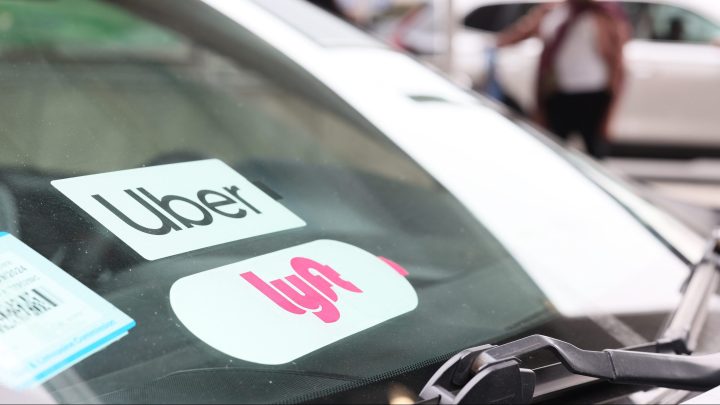
Local governments are employing gig workers and offering better benefits
Local governments are employing gig workers and offering better benefits

According to the Pew Research Center, 16% of American adults and 30% of younger workers say they’ve earned money through online gig platforms. Companies like Uber and TaskRabbit often offer workers supplemental income and a flexible schedule, but usually without the protections and benefits found in traditional work. Now, local governments are also offering nonstandard work opportunities like gig work, but with better terms.
Xavier de Souza Briggs, a senior fellow at Brookings Metro, co-wrote an article about the public sector creating gig work platforms. He wrote: “We are seeing an important, two-sided government innovation: the modernization of public work-finding platforms for underserved workers linked to the broader modernization of public service delivery.” Long Beach, California, is one of the first cities in the country to employ gig workers for flexible employment at schools and events and in community health and even child care.
Briggs spoke to “Marketplace” host Kai Ryssdal about the state of the gig economy and what this program means for workers.
The following is an edited transcript of their conversation.
Kai Ryssdal: You write in this piece I saw at Brookings Metro that you believe what we need in this country, among the many things we need in this country, in the labor market, is a public option for gig workers. What does that mean?
Xavier de Souza Briggs: Well, Kai, many workers are effectively sidelined in our economy, as you know, as strong as the job market is. Many either need work that’s flexible because they cannot work a regular schedule or they want to supplement their salary job to get some extra income. And what we’ve outlined in the research is an emerging development coming really from local governments offering gig workers a way to find work on good terms, a way to show the full range of skills they have to progress over time, to have an employer of record so you can get benefits and basic protections afforded by law, and other terrific things.
Ryssdal: You point to a pilot program in Long Beach, just down the road from me where I am in Los Angeles. So let’s say I’m a semiskilled worker, I’ve got time on my hands, I need more income and I’m in the neighborhood of Long Beach. How might this work?
Briggs: You would go online and go into the app and go through a short intake process. You do an intake, not unlike the kind you would do if you clicked on Uber where it says, “Do you want to be a driver?” And what the city of Long Beach is doing is buying some of the services, buying some of the flexible work that it needs. Governments across America are some of the biggest buyers of flexible work — seasonal workers for parks and rec, event staffers, folks to help out during disasters or other emergencies. But the idea is that the platform should be as accessible and easy to use as what, as what corporations are offering.
Ryssdal: While local governments are not businesses, as Uber and all the rest of them are, they certainly are not, you know, bottomless pits of money, and they have certain financial imperatives they have to meet, right? They have budgets, they can’t go crazy. They can’t pay, you know, $40 an hour or whatever it is. And I guess the question is, how do you protect workers who, as everybody knows, are at a disadvantage when working for Uber? How do you protect those workers when they’re working for the city of Long Beach, for instance?
Briggs: Well, what local governments are doing as this approach expands is to ensure that workers are earning a decent wage. In the Long Beach case, workers are earning between about $15 and $22 an hour. And cities, they would normally be procuring seasonal work or other flexible work, temp agencies or other sources, often each agency sort of doing its own thing. But what the worker sees is, is an employer of record. It’s actually a nonprofit that acts as an intermediary, kind of like a temp agency would, but on better terms.
Ryssdal: I wonder what this says then, about what else this says, right? Because we’ve talked for years now about how work is changing. The pandemic has accelerated a lot of that. We’ve had the gig economy now, and this is another incremental change in the nature of work, specifically now in the public sector.
Briggs: That’s right. We need to guard against, you know, the inappropriate conversion of regular salaried work. It’s a challenge in our economy. And we don’t want government going down the road of becoming a bad employer. But the fact of the matter is that the public sector, and also the nonprofit sector and the business sector as well, all rely on flexible work to varying degrees, and we do in our everyday lives. So let’s make sure that gig work, or so-called nonstandard work, is good work too because it ought to be.
There’s a lot happening in the world. Through it all, Marketplace is here for you.
You rely on Marketplace to break down the world’s events and tell you how it affects you in a fact-based, approachable way. We rely on your financial support to keep making that possible.
Your donation today powers the independent journalism that you rely on. For just $5/month, you can help sustain Marketplace so we can keep reporting on the things that matter to you.

















